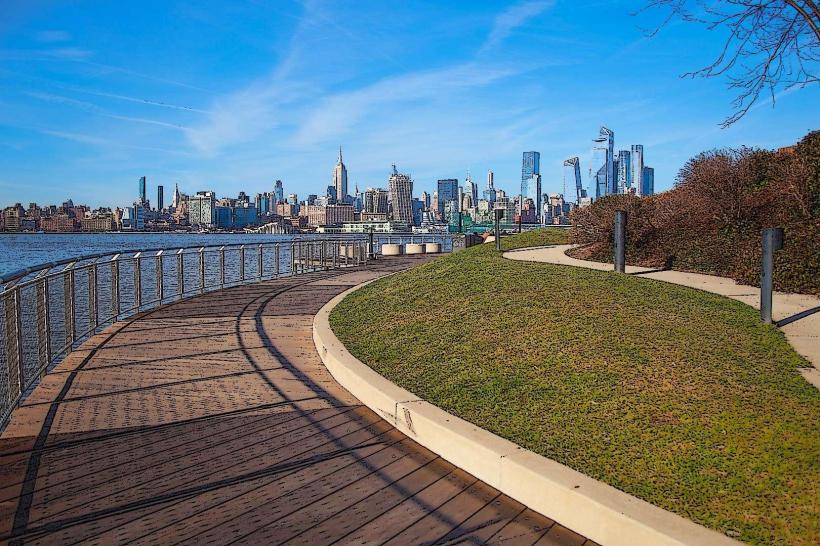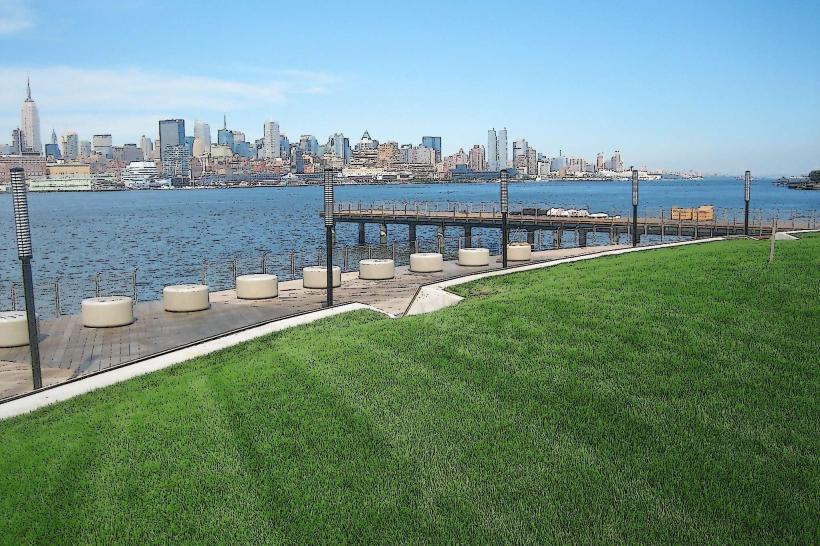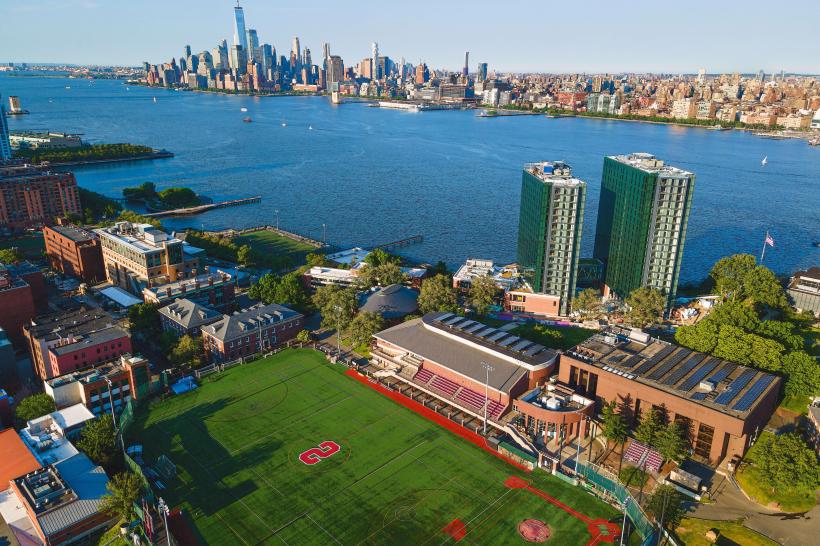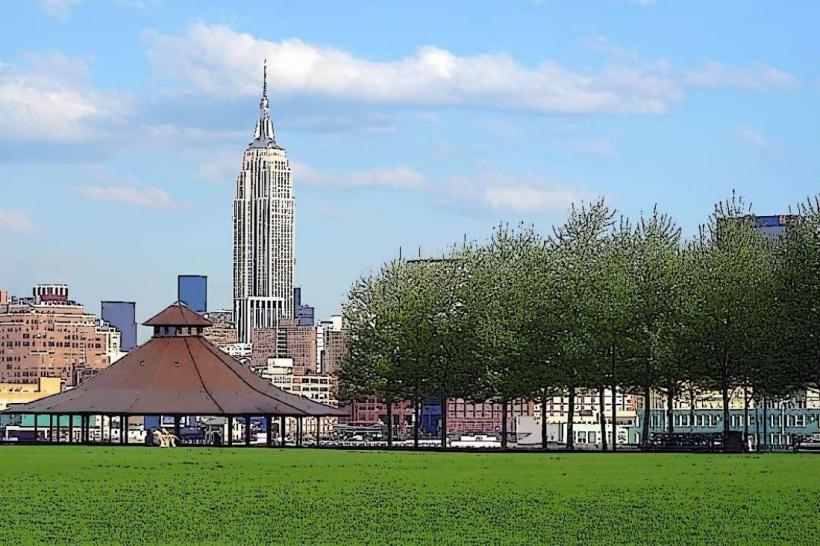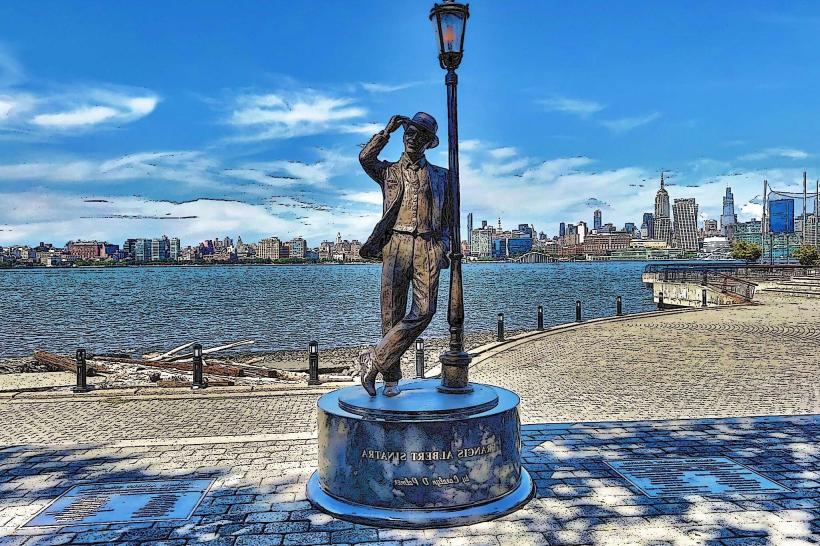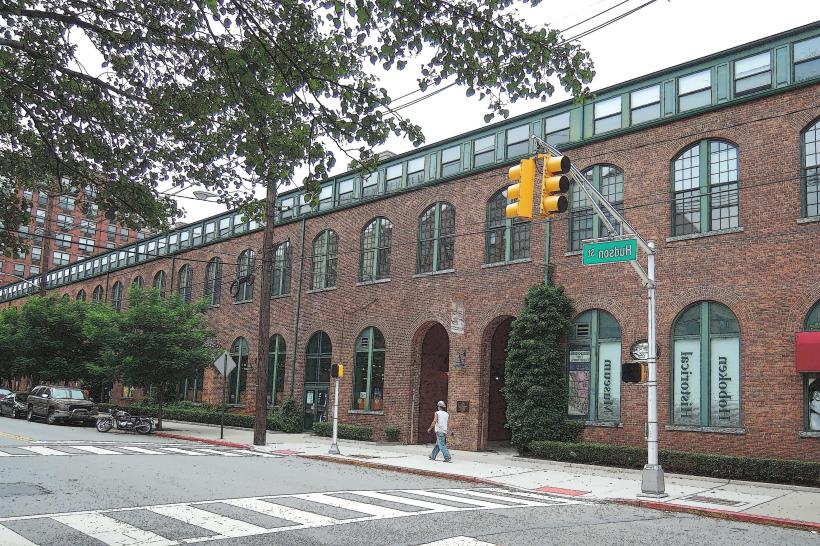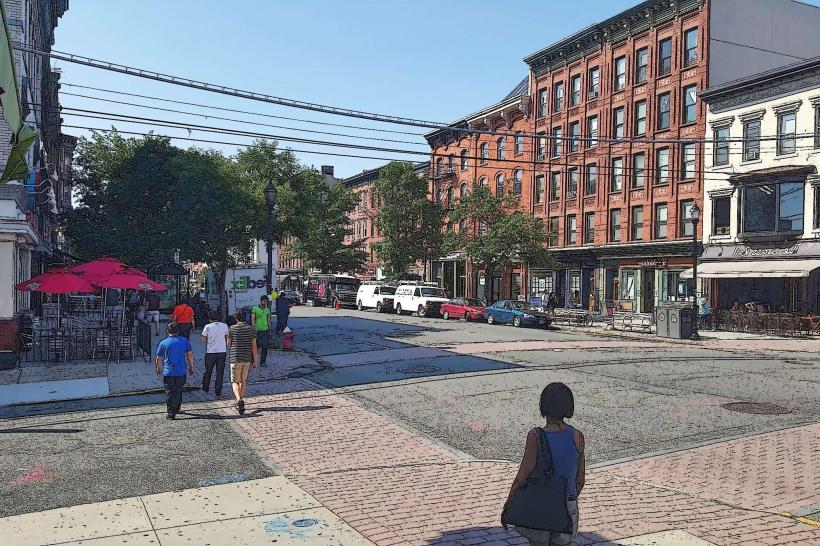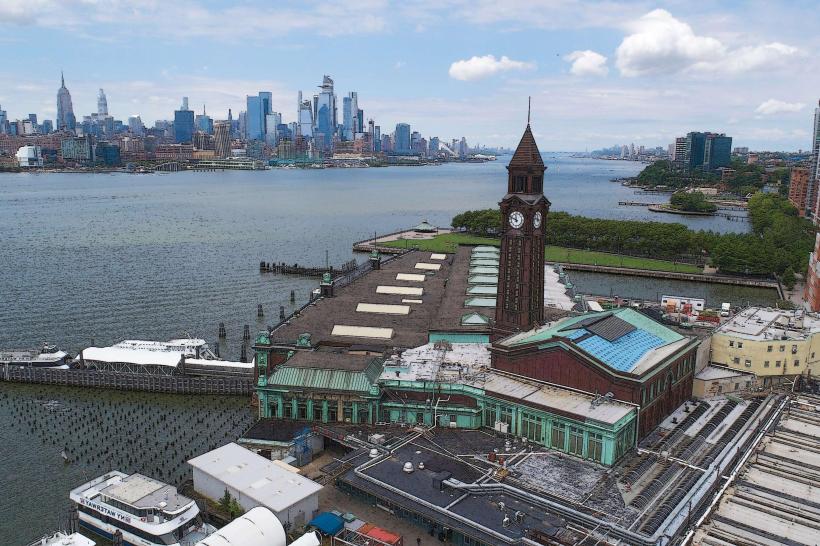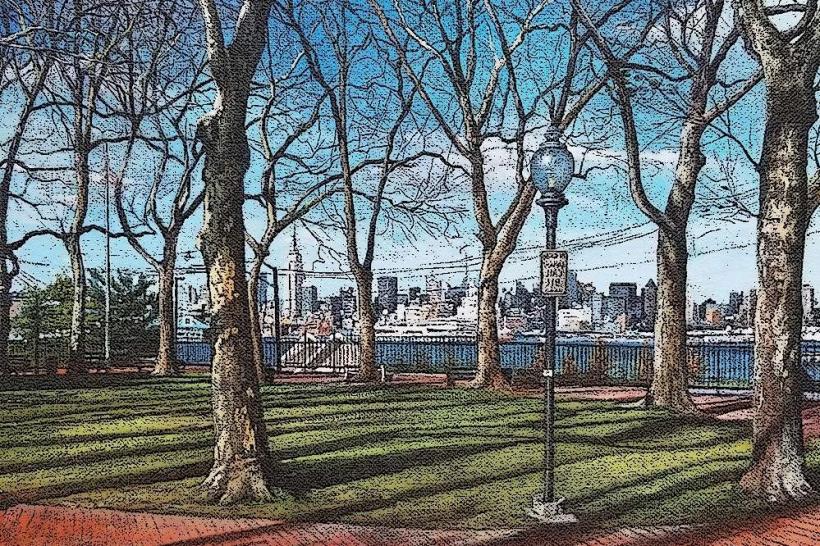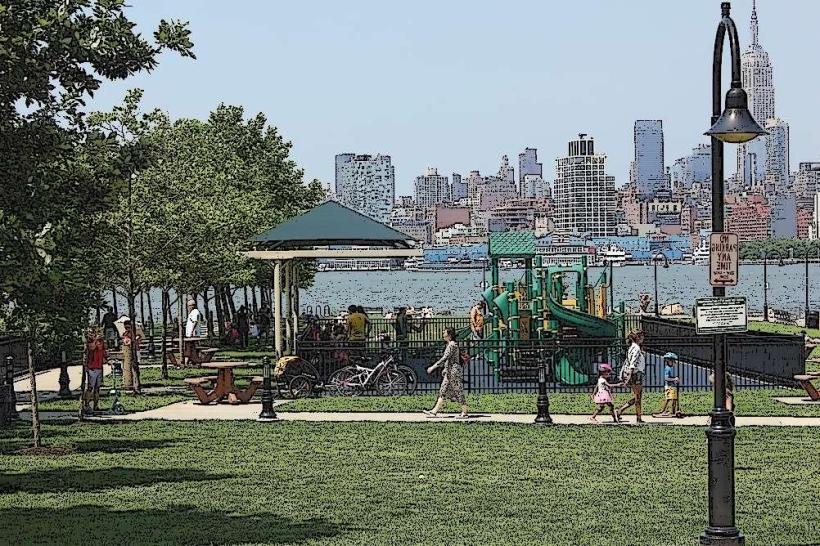Information
City: HobokenCountry: USA New Jersey
Continent: North America
Hoboken, USA New Jersey, North America
Hoboken, New Jersey, is a small but vibrant city located on the western bank of the Hudson River, directly across from Lower Manhattan in New York City. Covering just over two square miles, Hoboken is known for its picturesque waterfront, rich history, cultural vitality, and close-knit community atmosphere, making it a distinctive urban enclave within the greater New York metropolitan area.
Geography and Location
Hoboken’s waterfront location offers stunning views of the Manhattan skyline, the Statue of Liberty, and Ellis Island, establishing it as a scenic and highly desirable place to live and visit. The city’s compact size contributes to its walkability and neighborhood charm, with parks, piers, and promenades enhancing residents’ connection to the riverfront.
Historical Background
Founded in the early 19th century, Hoboken developed as a critical port and industrial center, playing a key role in shipping, shipbuilding, and manufacturing. Its strategic location made it a major transportation and commercial hub throughout the 19th and early 20th centuries.
Hoboken is famously known as the birthplace of Frank Sinatra, one of America’s most iconic singers, which adds to its cultural legacy. The city’s historic shipyards and piers reflect its maritime heritage, and many former industrial sites have been repurposed into residential and recreational spaces, blending history with contemporary urban living.
Economy and Development
While Hoboken’s economy was once dominated by shipping and manufacturing, it has transformed into a diverse economy with strong sectors in finance, technology, retail, hospitality, and creative industries. The city benefits from its proximity to New York City, attracting professionals who commute to Manhattan but prefer a smaller-city atmosphere.
In recent decades, Hoboken has experienced significant residential and commercial development. Luxury condominiums and apartment buildings have been constructed along the waterfront and throughout the city, catering to young professionals and families seeking urban amenities with easy access to New York City.
Transportation
Hoboken is a vital transportation hub, with multiple transit options facilitating easy connectivity. The Hoboken Terminal is a major intermodal facility serving NJ Transit trains, PATH rapid transit trains, ferries, and buses. This terminal provides direct access to Manhattan, northern New Jersey, and beyond, making it an essential gateway for commuters.
Ferry services from Hoboken offer scenic and efficient transit to Midtown and Downtown Manhattan, favored by many for their comfort and speed. The city’s bike lanes and pedestrian-friendly streets encourage alternative transportation modes, supporting a sustainable urban environment.
Culture and Community
Hoboken is known for its lively arts and cultural scene. It hosts numerous events, festivals, and live music performances throughout the year, reflecting its artistic spirit. The city has a rich tradition of supporting local artists, musicians, and performers, and features galleries, theaters, and music venues that attract both residents and visitors.
The dining scene in Hoboken is diverse and vibrant, with a mix of casual eateries, waterfront restaurants, and upscale dining options. The city’s culinary offerings highlight a range of international cuisines, contributing to its reputation as a foodie destination.
Parks and Recreation
Hoboken prioritizes green spaces and outdoor activities. Its waterfront parks, such as Pier A Park and Sinatra Park, provide expansive lawns, walking paths, playgrounds, and areas for sports and relaxation. These parks serve as community gathering spots and offer breathtaking views of Manhattan.
The city’s proximity to the Hudson River also allows for water-based recreational activities like kayaking and sailing, supported by local marinas and clubs.
Housing and Living
Housing in Hoboken is a blend of historic brownstones, renovated industrial buildings, and modern residential developments. The city has become increasingly popular among young professionals, families, and artists due to its unique combination of urban amenities, cultural offerings, and proximity to New York City.
Real estate prices have risen steadily, reflecting the city’s desirability, but Hoboken remains a community-oriented city where neighborhood events and local businesses foster a strong sense of belonging.
Summary
Hoboken is a charming, culturally rich city with a strong historical identity and a modern urban lifestyle. Its waterfront location, excellent transportation links, thriving arts scene, and diverse economy make it a highly sought-after place to live and work. Despite its small size, Hoboken offers a distinctive blend of history, community, and urban sophistication, making it an integral part of the New Jersey and New York metropolitan landscape.

